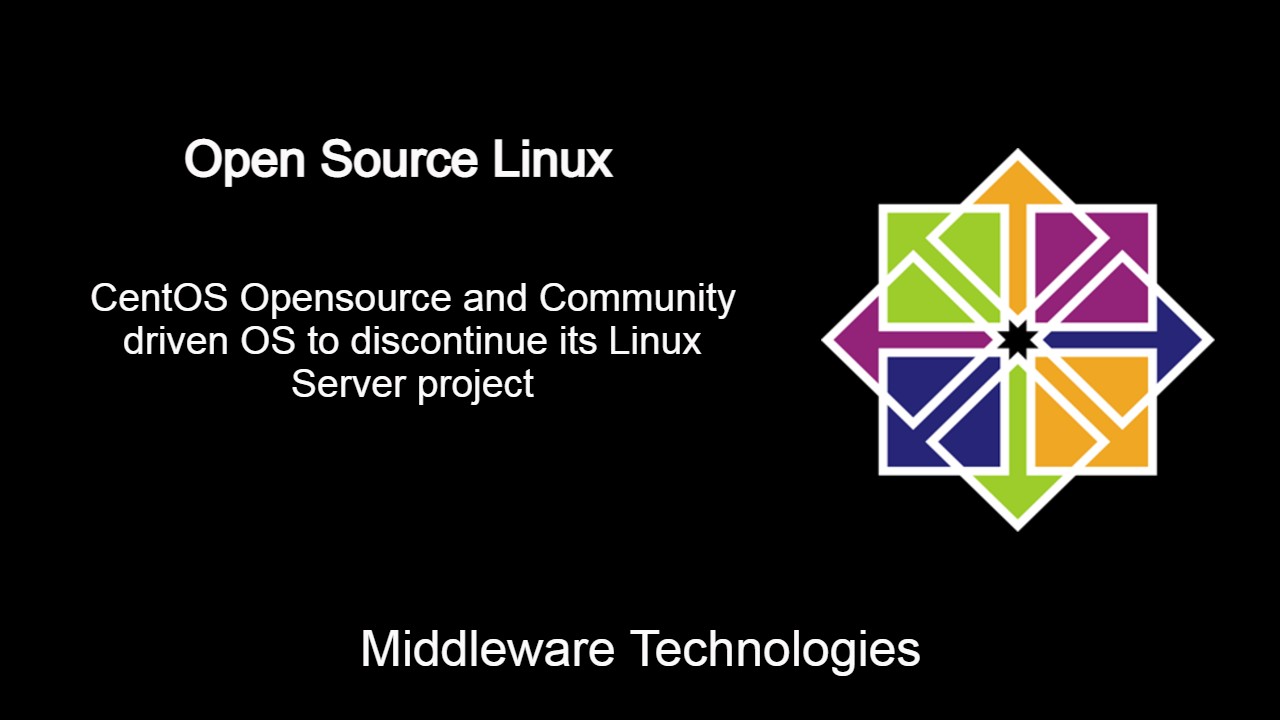CentOS Opensource and Community driven OS to discontinue its Linux Server project

In a Major update Tusesday (ie. 8th Dec, 2020) this week, Red Hat announced its discontinuing the support for CentOS Linux server. It will be instead focusing on the CentOS Stream Project which will be a rolling update distribution.
If you are interested in watching the video. Here is the YouTube video on the same.
CentOS is currently available in two Linux distributions
1. CentOS Linux
CentOS Linux is a community driven opensource linux operating system widely used as Linux server in Mid and Small Enterprise as an alternative to Red Hat Enterprise Linux which needs subscription.
2. CentOS Stream
CentOS Stream is a rolling update distribution with continuous delivery of new changes to the operating system.
Features and Benefits of CentOS
- Opensource community driven Linux operating system
- RHEL was the upstream project from which CentoS is built by removing all the licensing and subscription to make it available for free
- Widely used in Mid and Small Enterprise as it was free and opensource with a good community support
- Stable OS with well tested packages derived from RHEL. It was having a longer release cycle which is good for enterprises not to worry for frequent updates
- Each version EOL support was for 10 years
CentOS 7 Linux Server is still going to be supported until 30 June 2024 as per the usual EOL support cycle, but CentOS 8 Linux Server EOL has been cut-short to 31 December 2021 to discontinue it. This is going to be a major setback for enterprises relying on the Opensource CentOS as they either need to move to some other Opensource operation system or use the paid subscription model provided by RHEL to continue with its upstream project, Else move onto a different enterprise server distribution.
Some of the alternative operating systems that enterprises can consider for migrating from CentOS with there details are as below.
Alternatives
Ubuntu Server
1. Fixed Release cycle
2. Long term support version published every 2 years and available with 5 years of security updates
3. Software package management using apt with dynamic package dependency resolution. Debian based packaging model
4. Great community support
5. Available and supported by all major Cloud service provider like AWS and GCP
Debian Linux
1. Stable Operation System with regular release cycle
2. Support for 3 years with 2 years of extra LTS support
3. Supports more processor architecture that any other Linux distribution
4. Software package management using apt with dynamic package dependency resolution. Debian based packaging model
SUSE Enterprise Linux Server
1. Fixed Release cycle of 4 years for every new version
2. Subscription based support model available 24 * 7
3. Support for 10 years life cycle available with 3 years of extended support
4. Available and supported by all major Cloud service provider like AWS and GCP
Red Hat Enterprise Linux Server
1. Stable Operation system derived from Fedora its upstream project with cutting edge technologies release and tested frequently
2. Subscription based support model available 24 * 7
3. Support and services for each major release provided through phases – Full Support, Maintenance 1 and 2, and the Extended Life Phase
4. Available and supported by all major Cloud service provider like AWS and GCP
Hope you enjoyed reading this article. Thank you..
Leave a Reply
You must be logged in to post a comment.